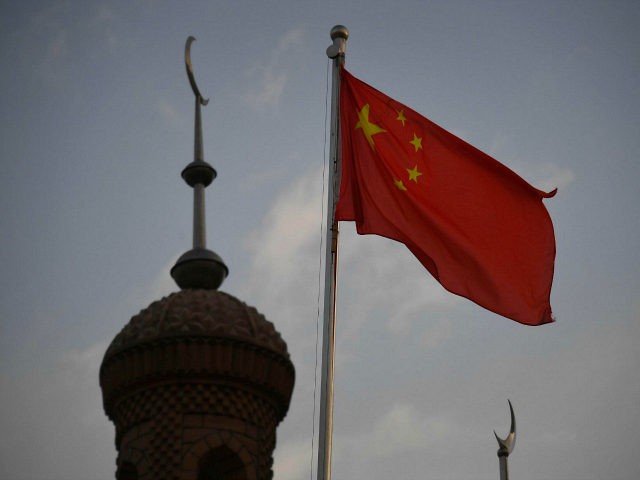The executive director of a United Nations watchdog group this week reportedly took the bloc of Islamic nations at the international body’s human rights council to task over its silence about China forcing hundreds of thousands of Muslim minorities, mainly ethnic Uighurs, into concentration camps in Xinjiang.
On Tuesday, CNSNews.com quoted Hillel Neuer, the executive director of the non-governmental organization (NGO) U.N. Watch, as asking, “If they truly care about Muslims, and for their religious freedoms, why has Pakistan and the Islamic group failed to introduce a single resolution” about China’s crackdown on Muslims.
Neuer was reportedly addressing the 57-member Organization of Islamic Cooperation (OIC), which wields considerable influence over the U.N. Human Rights Council (HRC) in Geneva.
Referring to HRC’s Islamic bloc, the watchdog chief proclaimed:
They spoke of Islamophobia and of criticism of religion. Yet if they truly care about Muslims, and for their religious freedoms, why has Pakistan and the Islamic group failed to introduce a single resolution, a single urgent session, a single commission of inquiry for one million Muslims currently being detained in camps and persecuted because of their religion – by China?
Of the 47 HRC member states, the OIC accounts for 15, or more than 30 percent, including prominent and outspoken Islamic countries like Pakistan, Egypt, and Saudi Arabia.
CNS News noted:
With Pakistan generally at the helm, the Islamic states have helped to guide the agenda, and are largely responsible for the HRC’s disproportionate targeting of Israel, and a controversial push to outlaw “defamation” of religion. Communist China’s treatment of ethnic Uighurs and other minority Muslims in Xinjiang, however, has drawn little public attention from the OIC.
Despite being described as an egregious human rights and religious freedom violator by the United States, China also sits on the U.N. Human Rights Council.
Rather than denouncing China for its mistreatment of their fellow Muslims in Xinjiang, the OIC praised Beijing’s efforts against Muslims.
Echoing the recently voiced positions of several of its members, the OIC said in March that it “commends the efforts of the People’s Republic of China in providing care to its Muslim citizens; and looks forward to further cooperation between the OIC and the People’s Republic of China.”
In recent months, Saudi Arabia, Pakistan, Malaysia, Indonesia, and most recently, Turkey, defended China’s oppression of Muslims.
Until this week, Turkey had been the only Muslim nation to regularly stand up for the Uighurs who belong to a Turkic ethnic group.
Several news outlets have noted that Muslim-majority countries have turned a blind eye to China’s abuse of predominantly Muslim Uighurs and other Islam adherents out of concern for their economic relationship with Beijing.
“China is the leading trading partner of at least 20 of the 57 OIC members. Pakistan, historically an ally of China, is a key partner in Beijing’s massive infrastructure program known as the Belt-and-Road initiative [BRI],” CNS News pointed out.
China has repeatedly claimed that its detentions centers, which it describes as vocational and training facilities, are focused on combating religious extremism, terrorism, and separatism in Muslim Uighur-majority Xinjiang province. Nevertheless, China’s actions have triggered condemnation across the world.
Many countries point to ample evidence that it instead is using alleged terror threats to violate the human rights of its Muslim citizens.
This year, the United States accused Beijing of imprisoning up to three million predominantly Uighur Muslim minorities in “concentration camps” where prisoners face extrajudicial incarceration, torture, communist indoctrination, forced labor, and the renunciation of their faith and native language, among other human rights abuses.

COMMENTS
Please let us know if you're having issues with commenting.